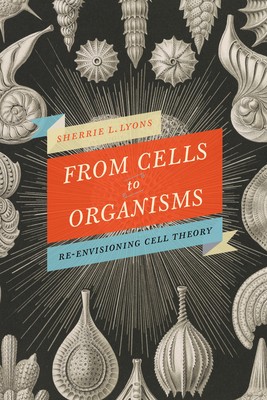
- We will send in 10–14 business days.
- Author: Sherrie L Lyons
- Publisher: University of Toronto Press
- ISBN-10: 1442635096
- ISBN-13: 9781442635098
- Format: 15.2 x 22.6 x 1.8 cm, softcover
- Language: English
- SAVE -10% with code: EXTRA
Reviews
Description
More than a history, From Cells to Organisms delves into the nature of scientific practice, showing that results are interpreted not only through the lens of a microscope, but also through the lens of particular ideas and prior philosophical convictions.
Before the twentieth century, heredity and development were considered complementary aspects of the fundamental problem of generation, but later they became distinct disciplines with the rise of genetics. Focusing on how cell theory shaped investigations of development, this book explores evolution, vitalism, the role of the nucleus, and the concept of biological individuality. Building upon the work of Thomas Huxley, an important early critic of cell theory, and more recent research from biologists such as Daniel Mazia, From Cells to Organisms covers ongoing debates around cell theory and uses case studies to examine the nature of scientific practice, the role of prestige, and the dynamics of theory change.
EXTRA 10 % discount with code: EXTRA
The promotion ends in 10d.20:51:46
The discount code is valid when purchasing from 10 €. Discounts do not stack.
- Author: Sherrie L Lyons
- Publisher: University of Toronto Press
- ISBN-10: 1442635096
- ISBN-13: 9781442635098
- Format: 15.2 x 22.6 x 1.8 cm, softcover
- Language: English English
More than a history, From Cells to Organisms delves into the nature of scientific practice, showing that results are interpreted not only through the lens of a microscope, but also through the lens of particular ideas and prior philosophical convictions.
Before the twentieth century, heredity and development were considered complementary aspects of the fundamental problem of generation, but later they became distinct disciplines with the rise of genetics. Focusing on how cell theory shaped investigations of development, this book explores evolution, vitalism, the role of the nucleus, and the concept of biological individuality. Building upon the work of Thomas Huxley, an important early critic of cell theory, and more recent research from biologists such as Daniel Mazia, From Cells to Organisms covers ongoing debates around cell theory and uses case studies to examine the nature of scientific practice, the role of prestige, and the dynamics of theory change.


Reviews